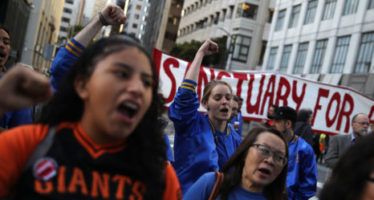Deceptive Agency To Punish Deception
NOV. 29, 2010
By LAER PEARCE
On Wednesday a California state agency with a well-earned reputation for deception will hold a public workshop that may well set a new standard for governmental hypocrisy in California – and that’s really saying something.
The hearing is the spawn of the California Air Resources Board (CARB), which has proposed a regulation prohibiting false statements. Under the new regulation, no one submitting information to CARB could knowingly and willingly “falsify, conceal or cover up by any trick, scheme, or devise a material fact.” The draft regulation ends ominously with: “This section shall not be the basis for any private right of action.”
A private right of action? As in some poor over-regulated sap going to court to charge CARB itself with making false statements to further its mission of saving the planet by smothering the private sector under regulations? Were such an action to be brought, the aggrieved sap would have many precedents to bolster his case – which is why CARB is guilty of proffering what is probably the most hypocritical regulation ever proposed in California.
The foremost exhibit against CARB is Dr. Hien Tran, a CARB scientist who wrote a key study the agency used to force recession-wracked operators of diesel off-road construction equipment to buy new, less polluting graders and trucks, at a cost of up to $12 billion. CARB identified Tran as a UC Davis-educated Ph.D. in statistics, a claim that gave his report some credence. But that was a false statement – Tran’s Ph.D. is from Thornhill University, which the Pacific Research Institute, the parent organization of Calwatchdog, points out is located “in a New York City office of the United States Postal Service.”
So Tran deceived us – but was CARB using tricks, schemes and devices to cover up for him? It appears CARB was duped just like the rest of us … initially. But ultimately, the agency hid Tran’s deception so it could stick it to off-road construction equipment operators – whether the facts backed up the regulations or not. CARB only came clean after one of its board members, John Telles, excoriated its staff in a three-page letter that explained the cover up in detail:
“On December 8, 2008, the Chief of the Research Division asked [Tran] if he had a Ph.D. in Statistics from UC Davis …. [Tran] on the evening of December 10, 2008, confessed to the Chief of the Research Division that he did not have such a credential. The following morning, the day [CARB] had convened to deliberate on the Truck Rule, this chief informed the Executive Officer, the Chief Deputy Executive Officer, the Deputy Executive Officer, the Chief of the Heavy Duty Diesel In-Use Strategies, the Chief of the Mobil [sic] Source Control Division, the Chief of the Health and Exposure Assessment Branch and at least one Board Member of [Tran’s] confession …. This information was not, however, relayed to the full Board. …
“Last week, on November 11, 2009, I learned that the Chair of CARB [Mary Nichols] was also aware of this information prior to the Vote …. Thus, neither the Staff nor the Board Chair informed the full board of this discovery prior the Vote. The Public, of course, was also not informed.”
CARB had allowed the fraud to be perpetrated in order to get the vote it wanted – an act far worse than any likely “false statement” anyone would ever try to pull on the agency. Embarrassing as that was, it wasn’t as embarrassing as Tran’s work itself, which Dr. S. Stanley Young of the National Institute of Statistical Sciences called “too flawed to be done by a capable statistician.”
The Tran study itself is a violation of the “false statements” regulation, which prohibits making or using “any false writing or document knowing the same to contain any materially false, fictitious, or fraudulent statement or entry.” Another CARB study in support of the off-road construction vehicle regulations violates the regulation as well because it overestimated the pollution caused by these vehicles by 340 percent. That little flub finally caused CARB to shamefacedly suspend the tainted regulation for the time being.
Asked if this kind of action by its staff – incompetence at best, criminal at worst – might call into question other allegedly scientific work of the air board, CARB chair and Tran co-conspirator Nichols told the Chronicle, “No, no, no, no, no, no, no and no.” That may be easy for her to say, but evidence points to the real answer: CARB can’t be trusted to follow its own proposed regulation because it routinely justifies its actions through staff-authored studies that are false, false, false, false, false, false, false and false.
Despite all this, the state’s air police have the unbridled arrogance to attempt to stop others from doing what they do with criminal regularity, even if it means having to strip the public of its right to free speech in the process.
Laer Pearce, a veteran of three decades of California public affairs, is currently working on a book that shows how everything wrong with America comes from California.
Related Articles
‘Sanctuary state,’ energy, housing bills face reckoning in Legislature
The California Legislature enters the final week of its 2017 session with ambitious measures on immigration, renewable energy and housing
What economic recovery?
April 19, 2013 By John Seiler Supposedly the economy has been recovering for three years, with the stock markets setting
California’s roads improve, but still are troubled according to new study
SACRAMENTO – Despite its well-documented inefficiencies and travails, California’s Department of Transportation (Caltrans) has managed to improve the state’s system




